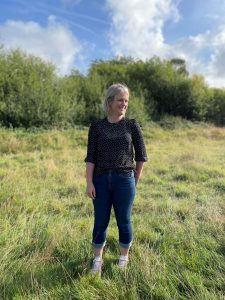How to overcome tax hurdles when investing in nature recovery
August 19, 2024
 More and more landowners, developers and businesses want to invest in nature recovery, but navigating the tax system can feel like a minefield.
More and more landowners, developers and businesses want to invest in nature recovery, but navigating the tax system can feel like a minefield.
We caught up with an expert, Jo White, to find out how best to reduce the tax burden when investing in nature and the environment.
Can you tell us a little bit more about you Jo and what you do?
I’m Jo White, a partner at the Sussex accountants and wealth advisers Kreston Reeves, specialising in property taxes.
I work with landowners and agricultural businesses helping them navigate an increasingly complicated tax landscape whilst all the time balancing the support family members need and preserving assets for future generations.
More recently, I have spent time helping our clients understand the new environmental schemes, such as the Biodiversity Net Gain (BNG) regime, and how they can benefit from them. It’s important that agricultural businesses do not let these schemes penalise existing tax positions that have been built often over many generations.
Are you seeing more businesses and landowners looking to invest in nature recovery?
In short, yes. Landowners have long been encouraged to diversify and nature recovery has been widely welcomed as another option available to them.
Residential developers are now approaching landowners keen to explore the new BNG regime, and proactive landowners are also actively exploring the opportunities it offers for future generations to profit.
Why is the private sector seeking to invest in biodiversity?
Landowners, particularly in the national park, have long had an eye on protecting and improving the biodiversity of the land they hold. It is good business.
Now, however, there is an added financial incentive. Landowners who choose not to invest in biodiversity risk future generations missing out on a valuable revenue stream. But there is often more to it than that – landowners have a genuine desire to leave the land they manage in a better position for their children and grandchildren.
What are the tax hurdles for landowners looking to set aside land for nature?

The single biggest issue is the lack of clarity and certainty surrounding the tax treatment of the various options open to landowners. Schemes, such as the BNG regime, are being put in place but the technical guidance that allows landowners to plan for future generations is just not there. From a practical level, this means landowners have to be as flexible as possible to ensure when specific rules are put in place, any reorganisation is kept to a minimum.
Landowners need, for example, to understand the tax treatment of income from nature recovery schemes. Depending on whether it is seen by HMRC as capital or revenue can mean a 35% difference in tax rates. Additionally, clarity is also needed around inheritance tax and whether the treatment of land will have a detrimental effect. Although we have now seen some on this aspect, more guidance is still needed.
What are the tax hurdles for businesses looking to invest in nature recovery on other people’s land?
Again, it is the uncertainty surrounding the tax treatment that is the primary concern. Whilst not a tax concern, businesses are being asked to work in different ways, often a fundamental shift from what they have known, particularly as some schemes require them to commit for a very long period of time.
How can businesses/landowners reduce the tax burden?
It is all in the planning. Getting good advice ahead of time gives businesses and landowners more options. Those options may have a limited impact on the business today but can have significant benefits for future generations. A lot of that planning will revolve around maximising tax reliefs, addressing any potential changes to the business, such as succession, and future potential uses of the land.
What are the benefits of reducing the tax burden?
Put simply, any money saved means more is available to reinvest in the business or to support day-to-day living. This is true of both tax on income, inheritance tax and considering future generations. Having to sell property to meet inheritance tax can have a devastating impact on farming businesses.
What would be your number one tip around tax and nature recovery?
Get advice! Build a strong team of specialist advisers to support you and your businesses now and in the future.
Looking to invest? Find out more about the National Park’s ReNature Credits scheme.
